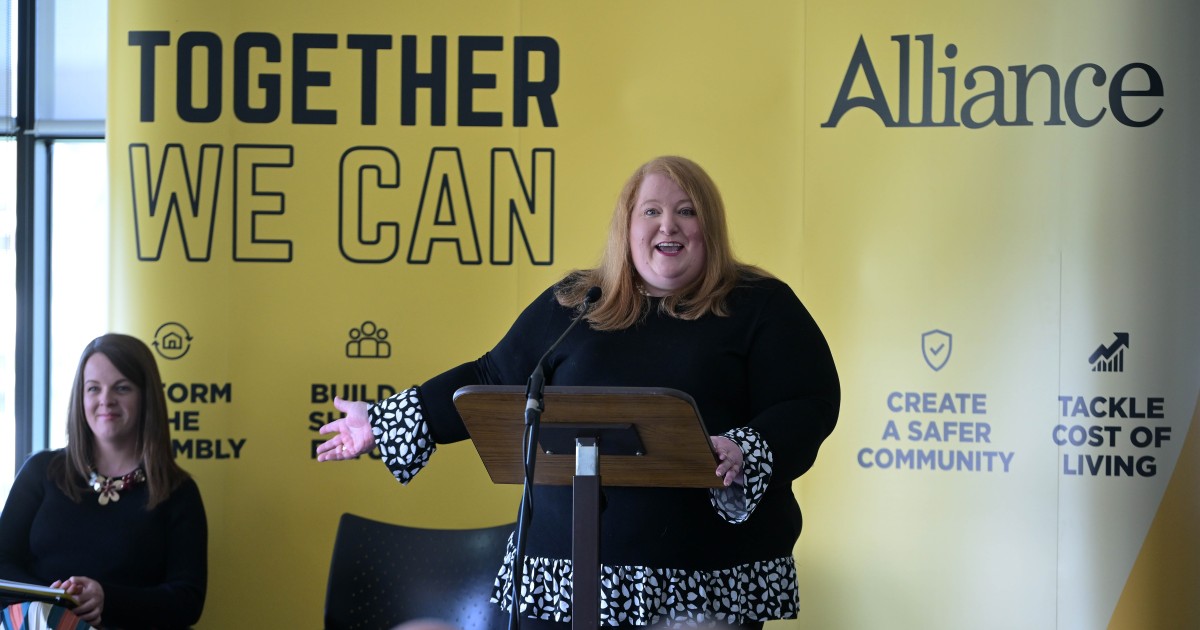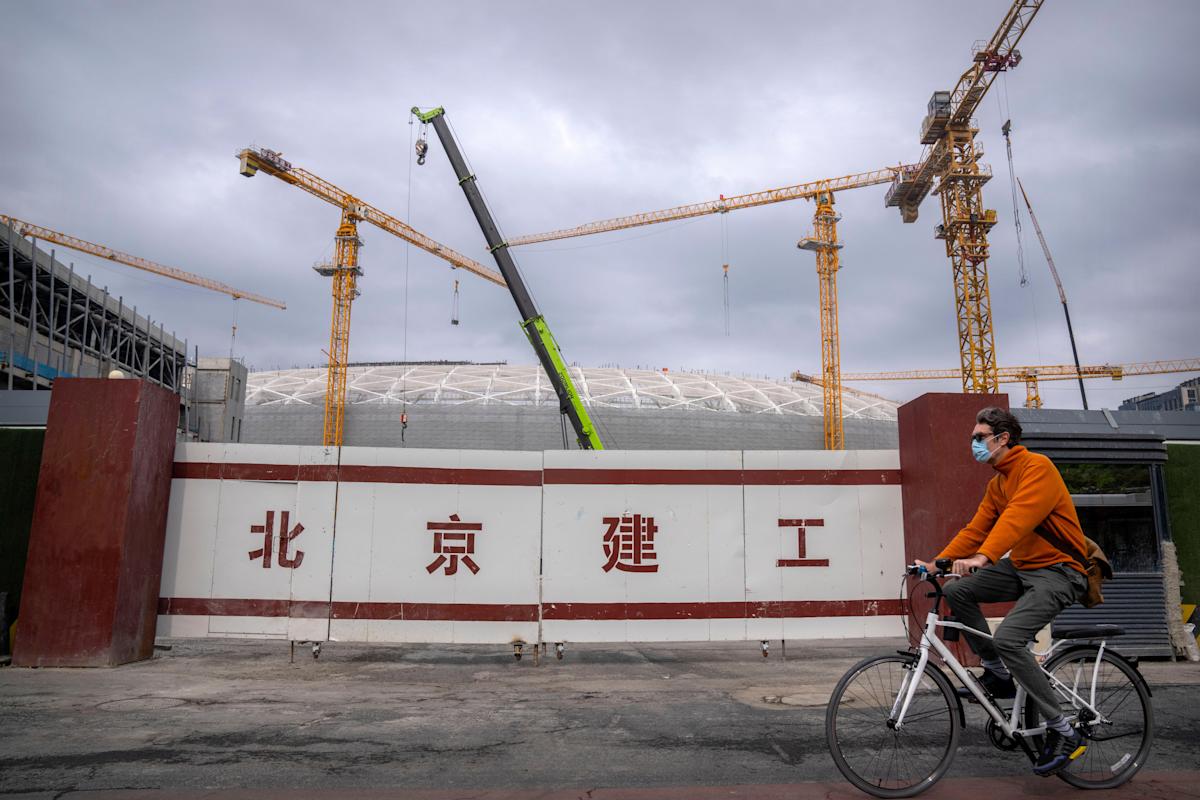
[ad_1]
A third political force is emerging in Northern Ireland: people who identify as neither nationalist nor unionist and eschew identity politics in favor of practical problem-solving.
Northern Ireland goes to the polls Thursday in an election being described as “crucial” to the region’s future.
Indeed, in a context where the United Kingdom government is threatening to disregard part of the Brexit-related Northern Ireland Protocol, and with the prospect of a break with the traditional Orange-Green binary, the stakes could not be higher.
Opinion polls have consistently shown the nationalist Sinn Féin on course to become the largest party in the Northern Ireland Assembly, with a six-point lead over the Democratic Unionist Party (DUP), the largest unionist party.
This, despite aggregate data showing Sinn Fein’s overall level of support slightly down on the vote it received in the last Assembly election in 2017.
The significance of Sinn Féin historic emerging with the largest number of seats lies in the fact that such an outcome would leave it with the right to nominate the first minister of Northern Ireland. This would be the first time in the 101-year history of the region that a Unionist party did not lead a Northern Ireland government.
The fact that Sinn Féin has consistently led opinion polls in the Republic of Ireland for much of the last two years has further encouraged a feeling in Unionist communities that the ground may be shifting decisively in the favor of a United Ireland. Yet the Sinn Fein campaign has been extraordinarily muted. The prospect of a “border poll”, ie a referendum on the reunification of Ireland, is one that spooks unionism and Sinn Féin has tried to avoid frightening the unionist horses about such a poll throughout the campaign.
Recent election results indicate that if the existential issue of the constitutional status of Northern Ireland is “on the ballot”, unionist mobilisation tends to be higher. Hence the efforts of the DUP to place the Northern Ireland Protocol front and center of this campaign.
They argue that it cuts Northern Ireland off from its main market in Great Britain and constitutes an intolerable affront to British sovereignty. Sir Jeffrey Donaldson, leader of the DUP, says his party will not participate in a new Executive (government) unless the Protocol issues are resolved. Yet there is little indication that concern about the Protocol will translate into a significantly higher unionist turnout and maintaining the DUP as the largest party in the Assembly.
The Protocol has been the subject of sometimes intense negotiations between the EU and the UK, and those talks have resolved significant problems over the past six months. The reality is that the political parties in Northern Ireland are only involved tangentially in these talks. Donaldson’s protests are almost entirely performative and aimed at shorting up DUP support in advance of the poll.
By far the biggest question hovering over this election is whether or not the Unionist parties will agree to participate in a new Executive led by Sinn Féin. The enormous symbolism of the shift in power in Northern Ireland is one issue. Another is the shadow cast by the past relationship between Sinn Féin and the Irish Republican Army (IRA). For the DUP, the campaign has involved a delicate dance, trying to fend off smaller Unionist parties amid a spirited advance by the centrist Alliance Party of Northern Ireland (APNI).
One of the final polls conducted by the University of Liverpool and The Irish News showed the Alliance party drawing level with the DUP. Part of the explanation for the rise in Alliance support lies in the deep level of frustration many voters feel with the traditional Orange-Green binary nature of politics in Northern Ireland. Both Sinn Fein and the DUP have brought down the Executive in recent years, Northern Ireland without a government for long leaving periods, and subject to direct rule from London.
The cost of living and healthcare emerges from all polls as the most important issues for voters. The prominence of these issues is not, of course, unique to Northern Ireland at the present moment. It does, however, highlight the emergence of a third force in Northern Ireland: people who identify as neither nationalist nor Unionist and eschew identity politics in favor of practical problem-solving.
The rise of the Alliance party has been incremental and cumulative. In 2019, party leader Naomi Long was elected with 18.5 percent of the vote in the European Parliament elections. The party also took 11.5 percent in the last local council elections and almost 17 percent in the 2020 Westminster election. Add in the Green Party and left-wing people Before Profit and it is conceivable that the non-traditional parties could take more than 20 percent of the vote on Thursday.
In Northern Ireland’s multi-seat proportional electoral system, transfers within and across parties will be crucial. All of this is consistent with the latest survey data from the Northern Ireland Life and Times Survey by Queen’s University Belfast and Ulster University, which shows that the largest identity group in Northern Ireland nowadays is not nationalist or unionist but “neither”, with 42 percent of respondents identifying in this way. This election may therefore produce a paradoxical result: a historic win for nationalism and further evidence of a shift in the fundamental axis of politics, from a binary identity model to a much more pluralist one.
The views expressed in this article are the author’s own and do not necessarily reflect Al Jazeera’s editorial stance.
[ad_2]
Source link



